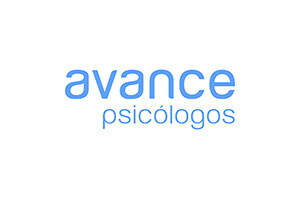The decalogue of the happy couple
There is decalogue of the happy couple which is used in some circles. The following exercise is an adaptation of others that I have seen in different places. Over time I have discovered that it is a good instrument to evaluate aspects of the couple's relationship.
How it is performed?
In the first place, I usually do it with both members of the couple present, and I explain that it is a teamwork. I like to say this because too allows me to observe how they behave when they know they must work as a team. It is interesting and gives a lot of play. Each one must have a sheet of paper and a pen to write.
I clarify that it is about finding the 10 aspects that make a couple happy. It is clear that we have to stick to a number, and that is why there are 10. But it can be said that in those 10 all those aspects that studies show that couples value in their relationship are included and it makes them happier in the relationship and on a day-to-day basis.
Obviously, it costs some more and others less, and there are some aspects that most find it difficult to specify, or even contemplate as part of the happiness of the couple. It is interesting for this, too. In general, they tend to agree with the criteria and recognize the value of these aspects.
This would be the first part, and the second involves individual work.
Before explaining the second part, I present the list of the decalogue.
The ten points of the decalogue
In consultation I have each aspect written on a card, and as soon as the patients arrive at that aspect, they describe it in one way or another, and I discard that card... We may speak far above it, and we continue looking for other aspects... And so on, until we reach the ten points of the exercise. Sometimes I have to help them a lot, and sometimes hardly, or not at all. I usually give positive reinforcement to them step by step.
Sometimes, to facilitate the exercise, I give them one or two aspects to open their mouths, and so that the exercise does not take so long.
The ones I give as an example are generally:
- I respect.
- Communication
Then, I also comment to them, "We only have eight to go, which ones can you think of?" And we continue with the list of the decalogue ...
- Share hobbies.
- Sincerity / trust.
- Mutual support.
- Individual Project / Common Project… (A patient said: “space, but also sharing…” They were an older couple… and that was their way of understanding it and claiming her space).
- Sexual satisfaction... (Many say "sex", but having sex is not enough to be happy, it must be satisfactory).
- Complicity / Empathy... (the term "empathy", and its concept, is now becoming more popular at the popular level).
The last two are the ones that seem to be the least obvious in consultation.
- Sense of humor.
- Admiration.
Regarding admiration, the following should be clarified. In couples therapy, falling in love is not very helpful, in some cases it can be a real problem. We do not consider it as something positive or necessary in the relationship. Nor do we despise it happily or gratuitously, at all.
On the other hand, admiration is essential to guarantee a good future in the couple's relationship, even when there are important problems.
The final part: evaluation
The next part of the exercise is shorter and I ask you to go on to work individually. I give each one a pen of a different exotic color and then ask them to rate the couple from 0 to 10, as a team, the grade they take in each of the named aspects. Remember that the two are evaluated as a whole... and write the score next to that aspect. I give them some time to think and put their notes. If you find it difficult to understand, I give you an exaggerated example so that you understand.
I ask that once you finish putting your notes, pass me your pages. I take a look at their lists and evaluations, and return their partner's so they can see how they evaluate the whole. From this point, we take a joint tour of all your scores and explore each aspect in relation to them. This offers us a good basis for couples therapy.
The decalogue of the happy couple is only a tool, and it will depend on practice and other variables to be able to get enough benefit from it so that its execution can take a series of sessions. However, It is very useful because it gives rise to deploying many other strategies and evaluating the state of the problem.
The fact that the members of the couple can evaluate their relationship as a whole is very helpful, and their way of dealing with This activity gives us a lot of information and allows the couple to be aware of the state of their relationship in each of these aspects.
In some cases, it helps the couple begin to separate. Many others, to work in the most vulnerable areas. It offers endless possibilities, which is why and I use this exercise frequently.

